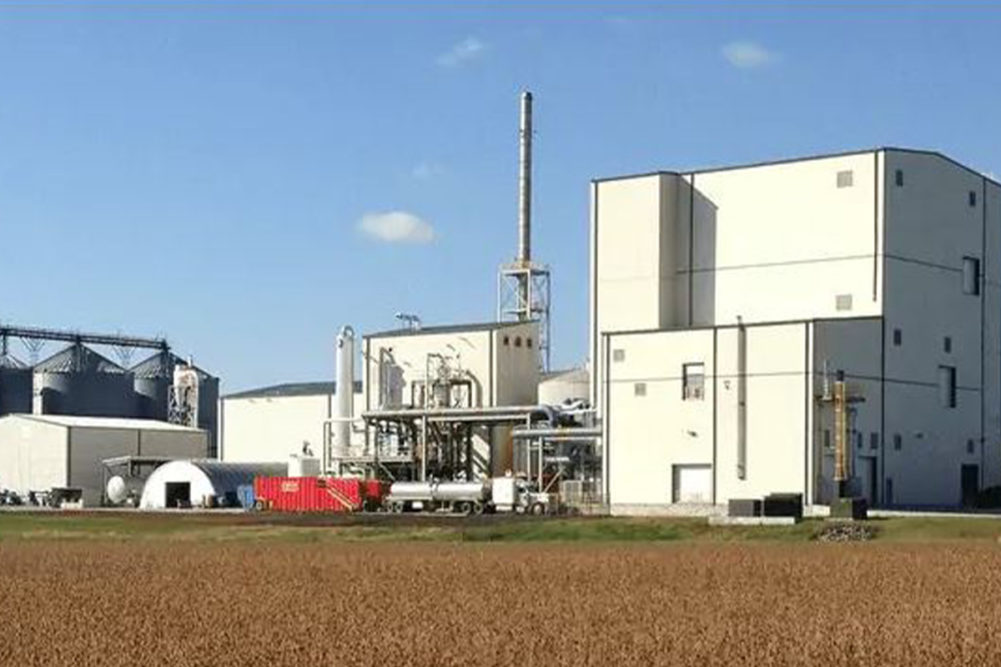ENGLEWOOD, COLO. -- For the second time in a month, Gevo, Inc. has signed a memorandum of understanding related to the production of energy-dense plant-based liquid hydrocarbons.
In the latest MOU, Sweetwater Energy, Inc., Rochester, NY, has reached an agreement with Gevo under which Sweetwater will build, own and operate a facility next to a Gevo ethanol and isobutanol plant in Luverne, Minn. The Sweetwater plant will produce high-value, plant-based products from cellulose and lignin while supplying Gevo with up to 30,000 tons of biomass-derived cellulosic sugars annually.
The announcement follows one in late October in which ADM and Gevo said it would cooperate toward the production of sustainable aviation fuel. In the ADM deal, ethanol produced at ADM mills in Nebraska, Iowa and Illinois is expected to be processed using Gevo technology into renewable low carbon-footprint hydrocarbons.
Sweetwater will use its Sunburst technology, which it says extracts cellulose, hemicellulose and lignin from different types of biomass more cost effectively than other pretreatment technologies. In this case, the technology will deconstruct lignocellulosic biomass. Targeted applications to be derived from cellulose and lignin include packaging, resins and other applications to displace petroleum-based products.
“We’re very excited to work with Gevo,” said Arunas Chesonis, chairman and chief executive officer of Sweetwater Energy. “This partnership fits perfectly with our goal for the company — replacing petroleum products with renewable solutions at a price point so low that making the right decision for the planet is also the right decision for our customers. This is the beginning of a collaboration that will pay very real dividends for present and future generations.”
At its plant in Luverne (about 30 miles east of Sioux Falls, SD), Sweetwater intends to use as feedstock qualified wood products and agricultural residues. Construction of the Sweetwater plant is expected to begin in the third quarter of 2022.
Gevo will use the offtake of cellulosic sugars co-produced by Sweetwater to produce cellulosic alcohols and renewable hydrocarbons.
According to Gevo, it is the first company to demonstrate conversion of cellulosic sugars to make sustainable aviation fuel meeting the ASTM D7566 specification (a specification for aviation turbine fuel containing synthesized hydrocarbon), allowing it to be used for commercial flights.
Gevo said its product will be commercialized effectively “when cost-effective sources of these sugars meet sustainability goals.”
“In addition, cellulosic D3 RINs are high value and create an opportunity for Gevo to leverage its Luverne plant with anticipated better returns to make higher value products that are in demand in the marketplace,” the company added.
“Combining forces with Sweetwater is a great way to leverage the best technology and resources from both parties to expand our addressable feedstocks to produce cellulosic alcohols and energy dense hydrocarbon fuels and plant-based products,” said Dr. Paul Bloom, chief carbon and innovation officer of Gevo. “Working together we anticipate delivering products to the market faster while decreasing risk throughout the value chain and lowering overall product carbon intensities through a systems approach to decarbonization. This is an important step to expand the portfolio of carbohydrates we process, now to cellulosic feedstocks that represent a huge amount of feedstock globally.”
Sweetwater Energy was established in 2009 as a spinout from the Rochester Institute of Technology. The company’s first Sunburst system was installed in 2020 in Imavere, Estonia, in a collaboration with nine European companies. The company is dedicated to producing low-cost nanofibrillated cellulose, microcrystalline cellulose, cellulosic sugars, and clean lignin non-food plant materials to help meet the modern world’s increasing bioenergy and biochemical demands.
Gevo is working to produce energy-dense liquid hydrocarbons from renewable energy and carbon. The products are intended to be used for “drop-in transportation fuels, including gasoline, jet fuel and diesel fuel with the potential, when burned, to yield net-zero greenhouse gas emissions “when measured across the full life cycle of the products,” the company said.
“Gevo uses low-carbon renewable resource-based carbohydrates as raw materials and is in an advanced state of developing renewable electricity and renewable natural gas for use in production processes, resulting in low-carbon fuels with substantially reduced carbon intensity (the level of greenhouse gas emissions compared to standard petroleum fossil-based fuels across their life cycle),” the company said. “Gevo also plans to take advantage of decarbonization via geological sequestration in the future. Gevo’s products perform as well or better than traditional fossil-based fuels in infrastructure and engines, but with substantially reduced greenhouse gas emissions. In addition to addressing the problems of fuels, Gevo’s technology also enables certain plastics, such as polyester, to be made with more sustainable ingredients.”
The company said its ability to penetrate the low-carbon fuels market depends on the price of oil and the value of abating carbon emissions that would otherwise raise greenhouse gas emissions.





